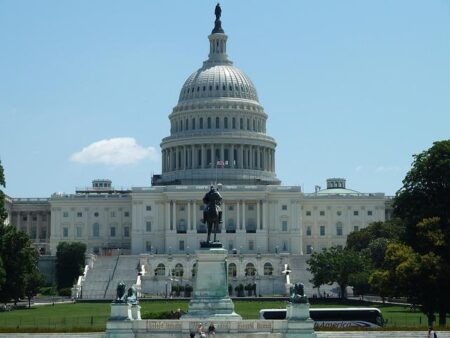How the Know-Nothings, Free Soilers and Other Third Parties Shaped US Politics
The Killeen Daily Herald
In the sprawling narrative of American political history, third parties have often played pivotal yet underappreciated roles. Groups like the Know-Nothings and Free Soilers, though short-lived and frequently overshadowed by the dominant Democratic and Republican parties, left an indelible mark on the nation’s political landscape. This article explores how these third-party movements influenced policy debates, reshaped electoral dynamics, and paved the way for major political realignments. Understanding their impact offers a deeper insight into the complexities and evolution of the United States’ democratic system.
The Rise of the Know-Nothings and Their Impact on Nativist Policies
In the early 1850s, a surge in anti-immigrant sentiment propelled the Know-Nothing Party‚ÄĒofficially the American Party‚ÄĒinto the national spotlight. Capitalizing on widespread fears about Catholic immigrants undermining Protestant values, the party swiftly gained traction across Northern states. Its members, sworn to secrecy, often avoided discussing their platform, earning the nickname “Know-Nothings.” Their influence pressured established political entities to adopt stricter immigration controls and heightened literacy requirements, shaping a wave of nativist legislation that would leave lasting marks on American policy.
Their impact is evident in a range of policies and social implications:
- Naturalization laws tightened: Waiting periods before citizenship were extended, delaying political participation for immigrants.
- Anti-Catholic rhetoric intensified: Public school curricula were modified to exclude Catholic teachings, reinforcing Protestant dominance.
- Political realignments: Traditional parties fractured as the Know-Nothings siphoned votes, contributing to the destabilization of the Second Party System.
| Year | Key Nativist Policy | Effect |
|---|---|---|
| 1854 | Increased naturalization period to 21 years | Delayed immigrant voting rights |
| 1855 | Mandatory literacy tests for voting | Restricted immigrant voter eligibility |
| 1856 | Promotion of Protestant-based public education | Marginalized Catholic cultural influence |
Free Soilers and the Fight to Limit the Expansion of Slavery
The Free Soilers emerged in the late 1840s as a formidable third party dedicated to preventing the spread of slavery into new territories acquired by the United States. Their platform centered on the idea that free men on free soil constituted a morally and economically superior system to slavery. This stance attracted individuals who opposed both the expansion of the slave economy and the dominance of plantation aristocracy but were not necessarily abolitionists. The Free Soilers helped to shift national debate by advocating for policies such as:
- Federal aid for internal improvements to encourage settlement by free laborers.
- Support for homesteading policies granting land to settlers under conditions that outlawed slavery.
- Promotion of popular sovereignty where settlers could decide the slavery status of their territories.
While the Free Soilers never gained majority status, their influence was significant in reshaping political alignments. They laid the groundwork for the emergence of the Republican Party, which united various anti-slavery factions. Their challenge to the dominant Whig and Democratic parties spotlighted the sectional tensions escalating toward the Civil War.
| Key Third Party | Main Goal | Impact on Politics |
|---|---|---|
| Free Soilers | Stop slavery expansion in new territories | Influenced Republican Party formation |
| Know-Nothings | Oppose immigration and Catholic influence | Shifted focus to nativist and anti-immigrant policies |
| Liberty Party | Immediate abolition of slavery | Introduced abolition as a national political issue |
Third Parties as Catalysts for Political Realignment and Reform
Third parties have long played a pivotal role in shaking up the American political landscape, introducing fresh ideas that often forced the major parties to realign their platforms. The Know-Nothings and Free Soilers exemplify this dynamic, emerging at critical junctures with clear, focused agendas that resonated with disenfranchised voters. Their influence extended beyond mere electoral performance; they compelled mainstream parties to address previously sidelined issues, reshaping political debates around immigration, slavery, and territorial expansion. By challenging the status quo, these groups acted as catalysts for reform, making the political environment more responsive to evolving public concerns.
The impact of these third parties can be seen in several key areas:
- Immigration policy and nativism: The Know-Nothings’ anti-immigrant stance pressured major parties to take explicit positions on immigration, stirring national discourse.
- Slavery and territorial rights: The Free Soilers’ opposition to the expansion of slavery into new territories forced Democrats and Whigs alike to confront the issue head-on.
- Electoral realignment: Their success highlighted fractures within the dominant parties, contributing to the eventual rise of the Republican Party as a major political force.
| Party | Main Issue | Legacy |
|---|---|---|
| Know-Nothings | Anti-immigration | Push for immigration restrictions |
| Free Soilers | Anti-slavery expansion | Set stage for Republican Party |
| Liberty Party | Abolition of slavery | Influenced abolitionist movement |
Lessons from 19th Century Third Parties for Modern Political Strategy
Examining the impact of 19th-century third parties reveals invaluable strategies for today‚Äôs political landscape. The Know-Nothings and Free Soilers, though short-lived, demonstrated the potency of focused messaging and tapping into prevailing societal anxieties. Their ability to mobilize specific voter blocs‚ÄĒimmigrants and anti-slavery proponents, respectively‚ÄĒproved that niche platforms could disrupt dominant party dynamics by pushing issues to the forefront of national debate. Modern strategists can learn from their success in:
- Harnessing single-issue emphasis to galvanize passionate segments of the electorate.
- Leveraging grassroots networks to counteract entrenched party infrastructures.
- Creating clear, memorable branding that resonates culturally and emotionally.
However, the eventual dissolution of these parties serves as a cautionary tale about sustainability in American politics. Third parties risk marginalization without broad coalition-building and adaptability. A quick comparison via the table below highlights key attributes that defined their rise and fall, offering a reference for contemporary political movements looking to maintain longevity beyond initial bursts of momentum.
| Party | Core Issue | Peak Influence | Primary Challenge |
|---|---|---|---|
| Know-Nothings | Anti-immigration | 1850s | Internal divisions |
| Free Soilers | Opposition to slavery expansion | Late 1840s | Absorbed by larger party (Republican) |
| Liberty Party | Abolitionism | 1840s | Limited voter base |
Concluding Remarks
As the annals of American political history reveal, the impact of third parties like the Know-Nothings and Free Soilers extends far beyond their brief moments in the spotlight. These movements not only challenged the dominant political orders of their time but also forced enduring debates on immigration, slavery, and national identity. While often overshadowed by the major parties, their contributions helped shape the evolving landscape of US politics, leaving a legacy that continues to influence contemporary discourse. The story of these third parties underscores a fundamental truth: in the dynamic arena of American democracy, even voices from the margins can drive meaningful change.


